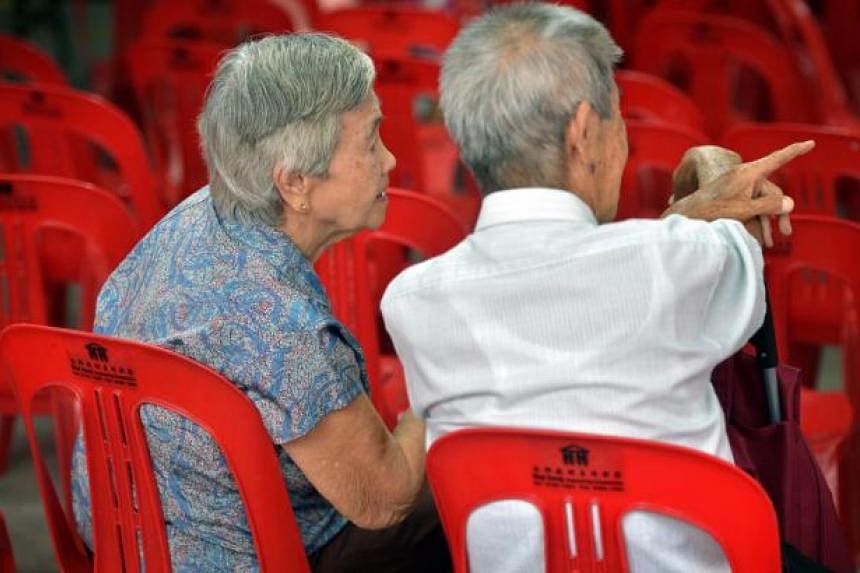SINGAPORE - The Budget 2015 revolves around the familiar themes of an inclusive Budget and improving on the social-economic infrastructure, said OCBC economist Selena Ling on Monday.
It highlighted issues such as retirement adequacy, which she said comes through very strongly through the Silver Support Scheme.
Deputy Prime Minister Tharman Shanmugaratnam said the scheme will supplement incomes for 20 to 30 per cent of seniors in their retirement years, with greater support going to the least well-off among them.
Ms Ling said the Budget this year was quite a crowdpleaser overall, as it ticked a lot of the boxes of the wishlist for businesses and households, tackling education costs, healthcare costs - especially for elderly members of the family - and CPF preparation for retirement savings.
She added: "If you think of the Silver Support and Workfare Schemes, it's interesting that they are talking about $1 billion a year. That's a fairly significant fiscal support for the elderly Singaporeans.
"It is timely because of ageing population, and really means that the policies makers are putting their money into action, and their plans to take care of the aging population."
She also noted that companies and businesses were given sweeteners this time round, in terms of the Transition Support Package, although the Productivity and Innovation Credit (PIC) bonus was not extended.
"It's a little bit of give and take because in terms of the corporate income tax rebate, they get an extension but at a lower cap of $20,000 per year. That will help mitigate some of the pain from increased Central Provident Fund (CPF) contribution rate for the older workers, and the higher salary cap for CPF."
She noted that the best case scenario for foreign worker policies - a standstill in terms of levies - "came through quite clearly for all the sectors".
Mr Tharman said current levy rates will not be changed for 2015 and 2016, for work permit holders in the manufacturing sector for instance.
But there were some misses for the wishlists of businesses, she said.
These include the lapse of stamp duty concessions for real estate investment trusts - which did get extensions of income tax and GST concessions - and no relief on the manpower front that some industry associations hoped for.
Ms Ling also noted that the Government's fiscal position for the financial year was fairly neutral with a very small Budget deficit.
"Looking forward into 2015, so far the announcements on the incentive front suggest that it will be fairly generous on expenditure fund, so the key question is where the additional revenue support is going to come from, in terms of strengthening revenue base."
The Goods and Services Tax (GST) is unlikely to be a major source, said Ms Ling, which raises the question of whether revenue will come from income tax.
"Given the very challenging position for business, especially in light of the tight domestic labour market situation, it's probably more plausible that it will come from the personal income tax side," said Ms Ling.
Mr Tharman said the top 10 per cent of taxpayers pay slightly more than 80 per cent of personal income taxes, and the top marginal tax rate for the highest income earners, with a chargeable income above $320,000, will be raised by 2 percentage points, from 20 to 22 per cent.
"At the end of the day, increasing the personal tax for the higher brackets is probably more palatable as compared with hiking GST."



